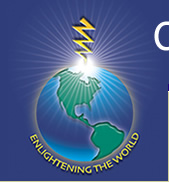
Aspiring to Amish-Like Radical Forgiveness
|
 |
|
Bea Mah Holland |
My husband Peter is a devout practicing Catholic. Over the past two years, he and I have attended two series of six-week Lenten preparation programs—Arise Together in Christ—in which 25 million Catholics around the globe have participated since 2008. The purpose of Arise is evangelization and spiritual renewal: “to help people become better hearers and doers of the Word of God.” (Lent is a pre-Easter tradition from Ash Wednesday to Holy Saturday in remembrance of Christ’s 40 days of fasting and prayer prior to his crucifixion.)
Arise is designed to enable people to model their behaviors on Christ’s behavior, and to further align their actions with their faith. To this end, each Arise session includes a Bible reading, prayer, contemporary stories illustrating the selected scriptural passage, small-group discussion of the relevance of the passage to our lives, story telling, and sharing of possible concrete actions to materialize our beliefs.
Having been a parish member since 1984, and serving as co-chair of the church finance committee, Peter knew most of the 10 or so members of our group. On the other hand, I was a stranger with no knowledge of most of the participants. Yet I was soon engaged with other group members as we all shared rich stories about our families of origin, personal and professional forces that shaped us, and our aspirations to live our faith more authentically. Most of the people who had taken part in our 2009 series chose to continue in 2010—clearly a statement that some needs were being met.
For me, the most powerful Arise session addressed the topic of forgiveness. One of our group members had lived in Amish country and spoke of their norms of love and forgiveness, which were beyond what I could grasp. As is well known, on October 3, 2006, a lone gunman, Charles Carl Roberts IV, shot 10 girls in their schoolhouse in Lancaster County, Pennsylvania, killing six who were ages 6 to 13. After ordering the boys to leave the building and the girls to line up against the chalkboard, he bound their arms and legs with plastic ties. In a selfless act—an apparent effort to buy time for the remaining students—13-year old Marion Fisher stepped forward and asked him to shoot her first. Then her younger sister Barbie allegedly asked Roberts to shoot her second. When the police stormed the school, Roberts committed suicide.
In an example of compassion and forgiveness that puzzled—and sometimes angered—the outside world, the Amish reached out to the family of the man who had taken the lives of their children. According to a CNN report on the day of the shooting, “Jack Meyer, a member of the Brethren community living near the Amish in Lancaster County, said local people were trying to follow Jesus’ teachings in dealing with the ‘terrible hurt’…I don't think there’s anybody here that wants to do anything but forgive and not only reach out to those who have suffered a loss in that way, but to reach out to the family of the man who committed these acts.” An outpouring of forgiveness and compassion was evidenced by the behavior of many in the community: one Amish neighbor embraced the father of Charles Roberts and told him they would forgive him, while another invited Robert’s widow to attend one of the children’s funerals. At the large community service, people cried not only for the loss of the schoolgirls, but also for their killer, who was described as a loving husband and father of three young children. Over 30 Amish community members attended the killer’s funeral and comforted his family.
The Amish religious community is known for modeling their lives on that of Jesus Christ. On NBC News, an Amish midwife—who had birthed several of the girls—stated that the community was planning to take food over to the house of the Roberts family, explaining: “This is possible if you have Christ in your heart.” Journalist Tom Shachtman, author of the book Rumspringa: To Be or Not to Be Amish, said, “This is imitation of Christ at its most naked. If anybody is going to turn the other cheek in our society, it’s going to be the Amish…I don’t want to denigrate anybody else who says they’re imitating Christ, but the Amish walk the walk as much as they talk the talk.” Gertrude Huntington, a specialist on Amish children, also noted, “The hurt is very great ... But they don't balance the hurt with hate.”
In CareNotes, in an article titled “How Forgiveness Can Heal Our Lives,” Linus Munday writes, “Christianity doesn’t hold a monopoly on this wise teaching; goodness and kindness to all—friend and foe alike—are at the center of religious belief worldwide…forgiving is something good we can do for ourselves; it is a gift we can give to ourselves. Forgiveness is the choice that can help us get better, not bitter.”
At a personal level, I know viscerally that the violent murder of my cousin’s daughter three years ago has permanently and profoundly affected our entire family. While I experience our clan, overall, as seeking the well-being and good in ourselves and in others, I know that in some ways we are held hostage by lingering feelings ranging from grief to rage. Certainly our desire for the perpetrator to receive a maximum sentence was due in part to protecting society; at the same time, I am aware of at least some primitive eye-for-an-eye stirrings of vengeance. With grace and the passing of time, our family is slowly healing and becoming less retributive.
The wife of the murderer wrote an open letter to her Amish neighbors: “Your love for our family has helped to provide the healing we so desperately need. Gifts you’ve given have touched our hearts in a way no words can describe. Your compassion has reached beyond our family, beyond our community, and changing our world, and for this we sincerely thank you.” The Amish practice of radical forgiveness, however unfathomable, is providing a lightning jolt—a jolt of light and love—for me, our clan, and beyond.
![]()
Center for Empowered Leadership ®
Email: info@cfel.org
Phone: 1.609.259.7911
